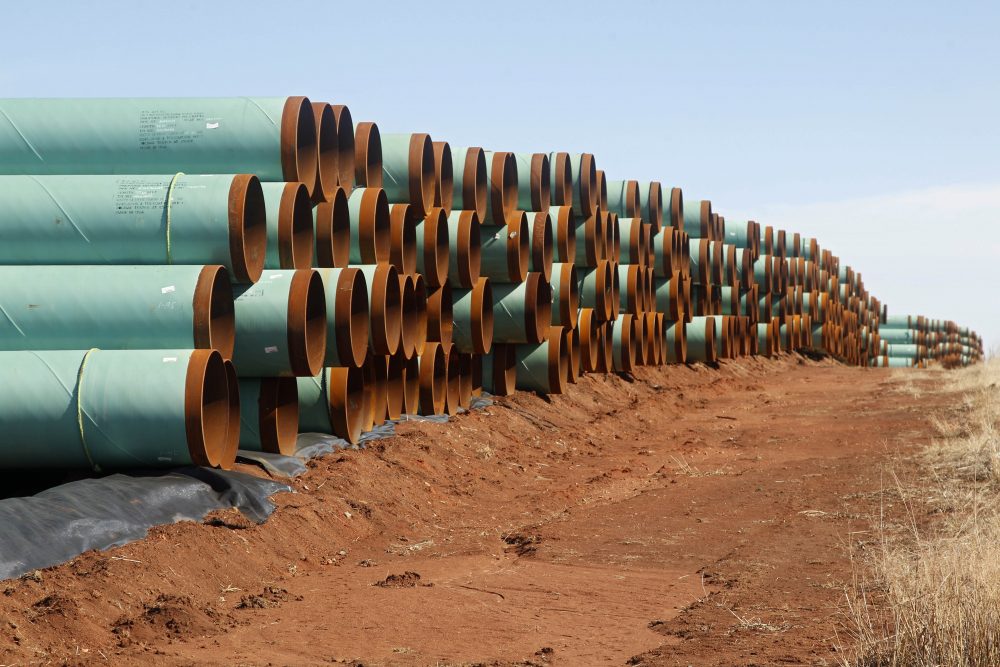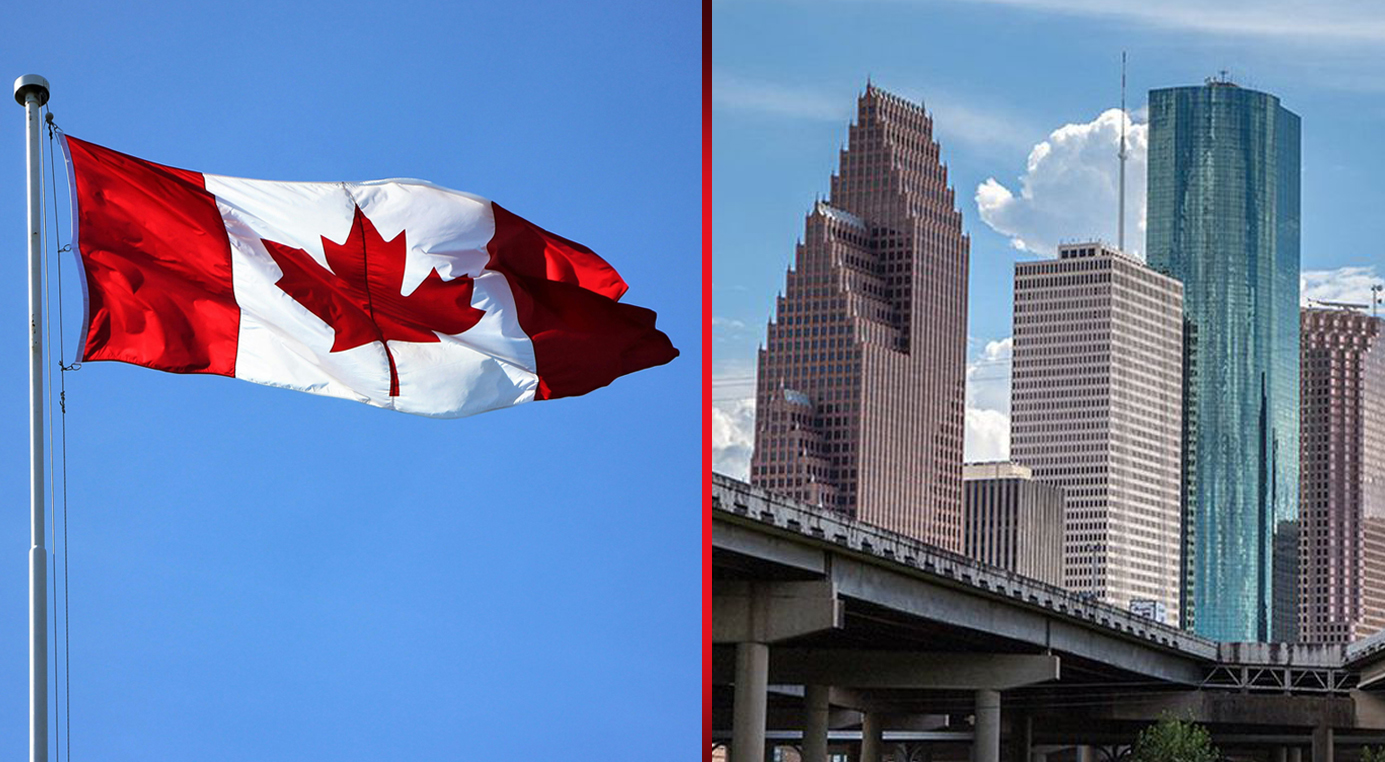 Houston corporations and the oil and gas industry do a lot of business with Canada that might be affected by tariffs on products from there.
Houston corporations and the oil and gas industry do a lot of business with Canada that might be affected by tariffs on products from there.
Canadians are upset about President Donald Trump threatening tariffs on all Canadian products, then imposing them on steel and aluminum all the while suggesting Canada should become America’s 51st state. Many Canadians see that statement as a threat to their nation’s sovereignty.
In a last-minute negotiation to hold off across-the-board tariffs until at least March 3, Canadian Prime Minister Justin Trudeau promised to implement a border plan that was already in progress but that includes, among other things, a “Fentanyl Czar” to tackle drugs entering the United States.
Here in the Houston area and across Texas, we’re economically linked to Canada in large measure through our energy sector. Canada supplies a lot of oil to the United States. We have a lot of Canadian workers here. Overall, trade with Canada supports more than 640,000 employees in Texas in addition to nearly 74,000 workers at Canadian-owned businesses across the state. Many of them here in Greater Houston.
The United States and Canada have long had a rock solid relationship. So, what does this recent national political shift mean for Greater Houston?
Kenneth Medlock, an energy fellow and senior director of the Center for Energy Studies at Rice University’s Baker Institute for Public Policy, says it will take some time to fully understand the impact tariffs on Canadian products will have on the Houston economy.
In an interview with Houston Matters host Craig Cohen Monday, Medlock said there will a be a lag before the effects are felt because the procurement processes for energy projects requiring aluminum and steel, like pipelines and power plants, began some time ago. And prices for those materials would eventually increase.
“When you look at those supply chains they’re not very flexible,” he said. “So, once you actually have imports designated, say, from a Canadian producer it’s very difficult to shift if there’s an increase in cost unexpectedly.”
So, who ends up bearing the brunt of increased costs whenever they eventually happen?
“Effectively what that means is the buyer ends up eating the bulk of that tariff,” Medlock said. “And that ultimately will get passed onto customers.”

AP Photo/Sue Ogrocki, File
Materials for things like pipelines could become more expensive if tariffs are imposed on Canadian goods.
Aside from infrastructure projects in the energy sector, Medlock said the effect on actual energy products, like crude oil and natural gas, would be different because Canada has few options beside the United States for where to move its crude.
Some refineries in the American Midwest rely more on Canadian crude, so they would share some of the burden of the tariffs. But states along the Gulf Coast, like Texas, have more options for where they can source crude oil, amounting to a bit of a competitive advantage for the United States in this trade battle.
“Most of that tariff we won’t feel down here,” he said.
Medlock added that most of the tariffs will be “eaten” by Canadian oil and gas producers.
“That’s got a lot to do with why the Canadians are upset…there’s a very sound recognition that the U.S. — it is the Canadians’ largest trading partner,” he said.

Kenneth Medlock III is an energy fellow and senior director of the Center for Energy Studies at Rice University’s Baker Institute for Public Policy.
But reciprocal counter tariffs from Canada on American goods could have an “overall negative impact” for the economies of both countries, Medlock noted.
Beyond energy, Houston and the state of Texas as a whole play a sizeable role in trade between the two nations.
“There’s a lot of consumers here, so anything that Canadian goods and service sector touches will have an impact on overall the balance of trade between the U.S. and Canada…so, yeah it will have an impact,” Medlock said.
How the situation plays out remains to be seen, but Medlock remains hopeful that what’s transpired so far is just negotiation tactics.
“Overall, what we hope to see is that these are just shots across the bow to trigger negotiations and the tariff discussions go away so that we can engage in trade with our neighbors as we always have and really help promote growth across the borders,” Medlock said.
